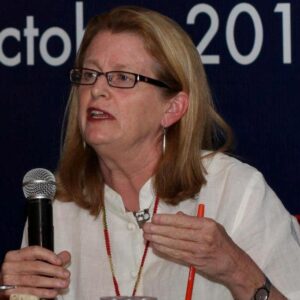
Founder & Executive Director

Founder & Executive Director
Executive Director

Jeannette is a forester and gender and development expert whose career has focused on leading organizational change for gender equality within agriculture and natural resource management organizations in Asia and Africa. She is founder and director of Women Organizing for Change in Agriculture and Natural Resource Management (WOCAN), a global network to support advocacy and capacity building for women’s leadership and women’s empowerment through partnering women farmers with women professionals and decision makers, and through building men’s support. Jeannette is the innovator and team leader for the W+ Standard ™ program within WOCAN to quantify and verify benefits to women, through the use of a results-based financing approach.
Jeannette has a MSc in forestry from the University of Washington, and a PhD in Gender and Development from the University of East Anglia (UK) with a focus on organizational development and change for gender equality. She has expertise in training/capacity building, action research, gender and organizational analysis, policy advocacy and network building, and has published numerous articles and books. She has served as Gender Expert of the Program Advisory Committee of the CGIAR Participatory Research and Gender Analysis Program, Team Leader for the Asian Development Bank project Harnessing Climate Mitigation Initiatives to Benefit Women, is Co-Leader of the Steering Committee of The Forest Dialogue an Advisor to the Gold Standard Climate Smart Agriculture Panel and a member of the Fair Trade Carbon Expert Group.
Contact: jeannettegurung@wocan.org
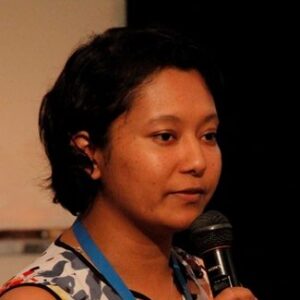
Regional Coordinator for Asia & Knowledge Management Coordinator
Regional Coordinator for Asia & Knowledge Management Coordinator

Nisha is a gender and climate change expert who has completed her PhD in Gender and Development studies from the Asian Institute of Technology, Thailand. Her thesis title is “Gender and caste relations in climate change adaptation: The case of Burgaon village, Humla district, Nepal”. She was a recipient of NORAD fellowship and UNDP Human Development Academic Fellowship. She has been engaged in research in South Asia and South East Asia related to climate change adaptation, livelihood diversification and gender and climate change. She has also participated and presented papers in various climate change workshops and conferences, and is actively involved in gender and climate change scholar networks. She has also published papers and book reviews in peer-reviewed journals.
Contact: nishaonta@wocan.org
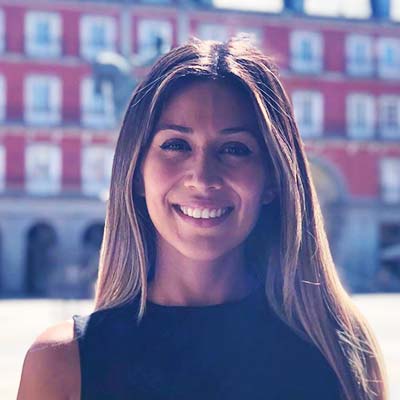
Program Manager, Climate Adaptation Finance for Women's Empowerment & W+ Standard Coordinator

Program Manager, Climate Adaptation Finance for Women's Empowerment & W+ Standard Coordinator
Program Manager & W+ Standard Coordinator

Larissa Dominguez is a gender specialist with extensive experience in governance of natural resources, rural development and public policy. She has provided technical support and capacity development for stakeholders ranging from government officials to grassroots organizations and women’s groups. She is currently the focal point for the implementation of Pillar 3 – gender equality in family farming – of the United Nations Decade of Family Farming in FAO. Larissa was trained in the W+ Standard process on site in Kenya in 2022. She holds a BS in International Relations from the Instituto Tecnológico Autónomo de México in Mexico and a MSc with Honours in Social Development with a focus on Gender and Climate Change from the University of New South Wales in Australia. Larissa lives in Rome, Italy and Mexico City.
Contact: larissa.dominguezfuentes@wocan.org
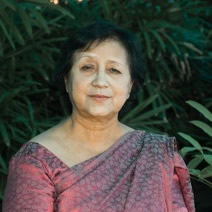
Gender Equality and Inclusion Specialist, Nepal
Gender Equality and Inclusion Specialist, Nepal

Gender Equality and Inclusion Specialist, Nepal Kanchan
Lama is a Gender Specialist with expertise in gender assessment/mainstreaming, gender analysis, design of training manuals and delivery of participatory training/workshop, policy advice/advocacy, review and evaluation of poverty alleviation projects/programs, mainstreaming gender and social inclusion into climate change adaptation and REDD+ initiatives in national contexts. Kanchan is one of the founders of WOCAN. She has more than 24 years of experience in senior management positions with multiple roles in INGOs, e.g., Action Aid, Lutheran World Federation; bilateral agencies, e.g., Canadian Cooperation Office (CCO), Finnish International Development Agency (Finnida), The Netherlands Development Organization (SNV), German Technical Cooperation (GTZ) ; and in multilateral agencies, e.g., Food and Agriculture Organization of the United Nations (FAO), the International Fund for Agriculture Development (IFAD) and the United Nation Development Fund for Women (UNIFEM). She has worked in Nepal and Timor Leste, and held short term assignments in India, Afghanistan, Sri Lanka and Pakistan. Kanchan is a Nepali citizen.
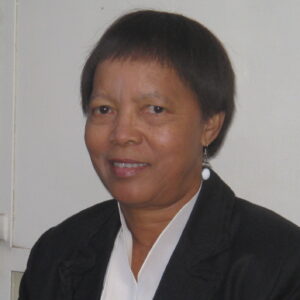
Core Associate

Core Associate
Core Associate

Sefora has a PhD in Political Science with majors in Rural Development and Public Administration from the University of Western Ontario in Canada and studied Gender and Development at Carleton University in Canada. She further studied, practiced and provided training in gender analysis and gender mainstreaming over the years. Sefora has worked in the Agricultural sector for over 10 years culminating in a strategic leadership position of Group Executive for Sustainable Rural Livelihoods at the Agricultural Research Council of South Africa for 8 years. From then on she has been working as a management consultant particularly in the Agriculture, Water and Rural Development sectors.
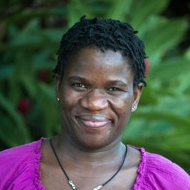
CETRAD - Kenya

CETRAD - Kenya
CETRAD - Kenya

Sarah Ogalleh is a research associate at CETRAD-Kenya. She has a masters in environmental science from Egerton University and is pursuing a doctoral degree from BOKU University, Vienna. She is currently involved in research on climate change, agriculture, gender and adaptations in Kenya’s semi arid lands and the Mau forest. Sarah is a core facilitator of WOCAN, with her interests in mentoring, local community empowerment, training, participatory research and natural resources management.
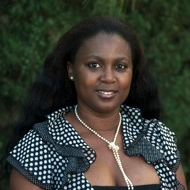
University of kwaZulu Natal, South Africa

University of kwaZulu Natal, South Africa
University of kwaZulu Natal, South Africa

Unathi Kolanisi holds BHuman Ecology (University of Western Cape, SA), Consumer Science (PhD North West University (PUK), SA). She is currently employed by the University of kwaZulu Natal, South Africa in the School of Agricultural, Earth & Environmental Sciences (SAEES) as a lecturer in Food Security Programme in Pietermaritzburg Campus. Unathi is a social facilitator, trained on Agricultural Research for Development (ICRA, Netherlands) and by WOCAN, allowing her to bridge the gap between theory and practice by engaging students to deal with real life community projects through linkages to NGOs and CBOs. She addresses gender issues not only through research but also by giving both men and women skills on how to infuse gender equity values & norms in agricultural production and resource management.
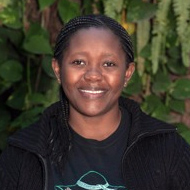
Swedish Cooperative Centre, Vi Agroforestry Project

Swedish Cooperative Centre, Vi Agroforestry Project
Swedish Cooperative Centre, Vi Agroforestry Project

Wangu has a Masters degree in Project Planning and Management, and a Bachelor degree in Economics. She is currently working as a Deputy Programme Director for Swedish Cooperative Centre and Vi Agroforestry in Nairobi. She has previously been working as a project manager coordinating field activities , planning, execution, monitoring and reporting.
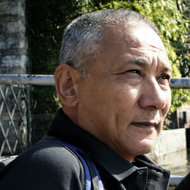
WOCAN Lead Trainer

WOCAN Lead Trainer
WOCAN Lead Trainer

As an anthropologist with training in ecological anthropology, Barun Gurung has worked extensively with ethnic communities in the Himalayan region of Northeast India, Bhutan, Nepal and the Yunnan province of China, studying their indigenous knowledge of subsistence crops and medicinal herbs. This resulted in the establishment of a network of local researchers and development professionals in the eastern Himalayan region working on biodiversity, ethnicity ad gender issues. As the coordinator of the Consultative Group on International Agriculture’s (CGIAR) system wide program on Participatory Research and Gender Analysis, Dr. Gurung’s research attention and focus has been on trying to better understand how learning and change can be affected for mainstreaming gender-sensitive participatory approaches within research institutions that work on agriculture and natural resource management. As part of the CGIAR initiative, he led a team of researchers and trainers to provide capacity development for organizational research and implementation of change strategies in selected CGIAR centers, eight National Agricultural Research Centers of East and Central Africa, and five agriculture and natural resource management organizations in the Eastern Himalayan Region and Laos. He works as one of the Core Associates for WOCAN and has recently led gender training workshops for the Rural Women’s Leadership project in Nepal and the Philippines. Dr. Gurung holds a PhD in Anthropology from the University of Hawaii and speaks English, Urdu, Hindi, Nepali, Tibetan and Dzhongkha.
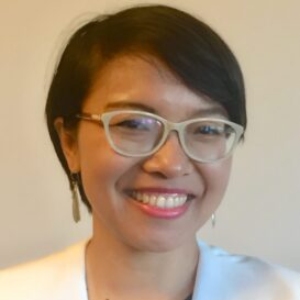

Abidah B Setyowati, PhD is an interdisciplinary social scientist with a background in human-environment geography from Rutgers University – The State University of New Jersey. She has extensive research and policy advisory experiences that focus broadly on energy governance, climate finance, natural resources and climate governance, nature based climate solutions and gender and social inclusion with a regional focus in Southeast Asia. She has assisted various international/multilateral agencies to develop and implement gender strategy and safeguards. She has also published widely on climate and energy governance, natural resources governance and gender.
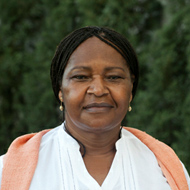
WOCAN Lead Trainer

WOCAN Lead Trainer
WOCAN Lead Trainer

Colletah Chitsike is a trainer and capacity building specialist with her Masters Degree in Adult Education from the University of Zimbabwe. She has extensive experience in Community Development, Organizational Development and Gender Training for Change. She has previously worked with the Zimbabwe Council of Churches, OXFAM GB and NOVIB in Southern Africa and CIAT (Center for International Tropical Agriculture) as the Capacity Building and Learning Management Specialist in Africa. She currently works at the International Centre for Development Oriented Research in Agriculture (ICRA) in Pretoria, South Africa, simultaneously serving as a WOCAN Associate and Gender Trainer. In this capacity, Colletah has led multiple trainings and workshops for WOCAN around the world, including the facilitation of a gender and organizational change workshop in Ghana, a curriculum development training for women and men supporting women’s leadership, participation in the WEDO delegation to the UNFCCC COP Meeting in Denmark in December 2009, and facilitated training of Change Agents and Leadership Training for Farmers for PAKISAMA Philippines Farmers Association May 2010.
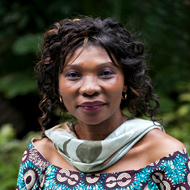

Cécile has a Master’s degree in Social Forestry from the Wageningen Agricultural University in The Netherlands. Cécile is a highly experienced Development Agent who mainly devoted her work on mainstreaming gender into development: training, advocacy, scoping, planning and evaluation. Cécile has been a Trainer of Trainers for more than 15 years. She is also the National Coordinator of a national NGO in Cameroon and the President of a women’s network composed of 14 African country members engaged in forestry, REFACOF.
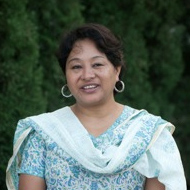

Dibya has a MSc in biological sciences from Tribhuwan University in Nepal. She has more than twenty years of experience in gender, rural development and natural resources management, ranging from grassroots to policy planning levels. She has worked for and trained several national and international organizations and closely worked with the government of Nepal.
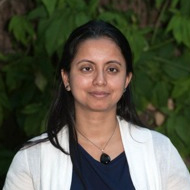
LEAF Project

LEAF Project
LEAF Project

Kalpana is a forester by training with substantive knowledge and experience in gender relations, environmental governance, innovation approaches, livelihoods, climate change and REDD+ in South and South East Asia. She holds a PhD in gender and environmental governance from the University of Natural Resources and Applied Life Sciences-BOKU, Vienna. She has written and edited over a dozen of scientific publications on gender, environmental governance, livelihoods and climate change.
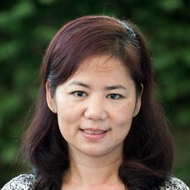
RECOFTC

RECOFTC
RECOFTC

Kalyan is a Training Coordinator for the Center for People and Forest known as the Regional Community forestry Training Center (RECOFTC). She has experience in working with government, nongovernmental organizations and communities and is trained in social sciences with more than ten years’ experience in research, training design, implementation and project management and proposal development related to Community Forestry, Community Fisheries management, co-management of Protected Areas, and participatory management of land-use planning. She holds a Master’s degree in Environmental Management and Development from the Australian National University in Canberra, Australia, and Bachelor’s degree in Forestry Science from the Royal University of Agriculture, Cambodia. Her interests and substantial experience in collaborative research and capacity building are related to rural development, forest governance, gender equity and poverty reduction. Recently, she actively involved in the consultative meetings, workshops on supporting the discussion and shared experiences and concerns on REDD+ development and implementation in Cambodia.
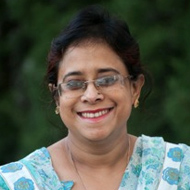
USAID

USAID
USAID

Mahmuda has a Master’s degree in Economics from Dhaka University, Bangladesh and a Master’s degree in Gender and Development from the Institute of Development Studies (IDS), Sussex University, UK. She is working for USAID/ Bangladesh as a Gender Advisor. Mahmuda has extensive experience in gender mainstreaming, training and integrating gender concerns in project cycle in USAID supported projects. She has conducted many gender trainings for different kind of participants such as Government Servants, Civil society representatives, implementing partners, etc., and helped conducting gender analysis.
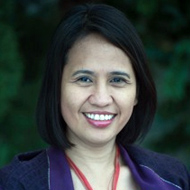
Presidential Adviser on the Peace Process

Presidential Adviser on the Peace Process
Presidential Adviser on the Peace Process

Marj has a Bachelor of Arts Degree in Development Studies from the Ateneo de Manila University. She has extensive experience in policy advocacy and conflict management in natural resources involving the indigenous peoples. She is currently in the policy unit of the Presidential Adviser on the Peace Process in Manila, Philippines where she assists in designing programs and interventions for the development of upland rural areas in former rebel sites. She has worked as a consultant in World Bank and JICA projects.
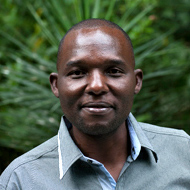

Noel is a rural development specialist with over 10 years experience and key competencies in rural livelihood analysis, food security and NRM, and gender analysis. He has a BSc in Agriculture from University of Malawi and MA from University of Western Cape (RSA). He worked with the International Centre for Tropical Agriculture (CIAT) for 6 years as Research Assistant and Regional Research Fellow, where he identified gender issues to be addressed in Malawi, Mozambique and Zimbabwe under the Innovation Platforms on Conservation Agriculture in Southern Africa. Noel has skills in facilitating public private partnerships using a value chain approach which he does as the Director of Programs within the African Institution of Corporate Citizenship (AICC).
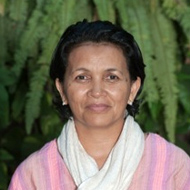

Danièle is a researcher, agronomist and has 25 years experiences in research and development and action research in Madagascar. Since 2004, she has been involved in the process of gender mainstreaming in her institution , the National Research Center Applied for Rural Development where she is the gender focal point. She participated as main investigator or researcher in different projects related to rural women’s leadership and women access to natural resources, funded by national and international institutions such as IDRC, IFAD. A member of WOCAN since 2010, she facilitated or co facilitated different training workshops on rural women’s leadership and gender analysis.
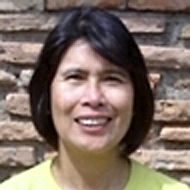

Ms. Maris Gavino is a gender and international agriculture expert and currently represents WOCAN at the FAO, WFP and IFAD in Rome. She served the Philippine government from 1977 to 2007, initially as an international agricultural analyst and later as the Alternate Permanent Representative to the FAO, WFP and IFAD. Her thesis work was on “Women in Development” and professionally, women’s issues are at the top of her agenda. Maris has led many efforts to sensitize the leading UN Agriculture agencies to gender issues. Today, these agencies are incorporating gender issues to a greater extent than ever before. Maris currently resides in Rome, where she is centrally located for her work with the FAO, WFP and IFAD.
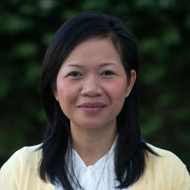

Phanlany is a gender and development consultant/trainer. She has a Master’s degree in Gender and Development studies from the Asian Institute of Technology, Thailand. She has extensive experience in gender advocacy, and in gender programming, particularly in integrating gender concerns into planning, monitoring and evaluation in the agriculture and forestry sector.
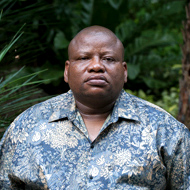
Rangelands Management, ARC-API

Rangelands Management, ARC-API
Rangelands Management, ARC-API

Sikhalazo is a Program Manager for Rangelands Management at the ARC-API. Prior to joining the ARC he was a Senior Scientist (Ecosystems Modeling) at the Council for Scientific and Industrial Research (CSIR) in Pretoria in the Global Change and Ecosystems Dynamics Research Group. He has extensive experience in research and training at all levels (farmers, tertiary and further education). His research, student supervision and policy inputs focus on rangelands ecology: the dialogue between science, resources users and policy formulators, development of decision support tools and mapping of resources in light of a changing world. He has participated, at SADC level, in the review of the Regional Agriculture Policy. He has served as a consultant for a number of national and international organizations including ILRI. He is a member and Past President of the GSSA. His publications include over 40 articles in scientific journals, proceedings, books and chapters in books. Dr. Dube holds a Ph.D. in Rangeland Ecology and Management (2005) from Texas A&M University, College Station, Texas, USA. He holds a number of other professional qualifications.
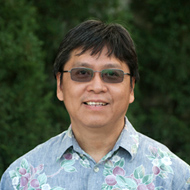

Somsouk Sananikone is a freelance consultant on gender and domestic violence. Recently, he worked as a consultant with the UNWOMEN in Laos on gender-based violence legislative review. He is currently pursuing a PhD study at the Faculty of Humanities and Social Science, Khon Kaen University, Thailand focusing on masculinity and violence against women. He has been working on issues related to social and rural development in Laos since the late 1990s.
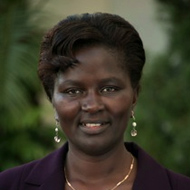
Institute of Environment and Water Management (IEWM)

Institute of Environment and Water Management (IEWM)
Institute of Environment and Water Management (IEWM)

Annabell Waititu is the Executive Director of the Institute of Environment and Water Management (IEWM) based in Nairobi, Kenya. She is a water, natural resources management (NRM) and gender expert with over 15 years of experience in mainstreaming gender in related policies, programmes and process. She is also a researcher on gender and NRM, women and environmental governance . Annabell is a Core-facilitator of WOCAN’s in the Women Leadership Circle in Agriculture and NRM Program in Kenya. She is also junior fellow at the Centre for Governance and Sustainability at the University of Boston.
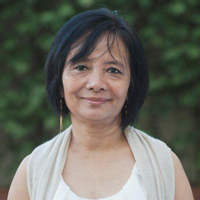

Darilyn lives in Shillong, India, has a Master’s Degree in English Literature but has dedicated over a decade of her life, working on gender issues as a trainer, gender sensitizing institutions as well as advocating for gender mainstreaming in policies and programs. She is currently a consultant for the North East Network, a leading women’s organization in North East India and a member of the Consortia Advisory Committee to the National Agricultural Innovation Project in India, periodically tracking the gender component of the program. She has to her credit two international publications both in the field of gender.
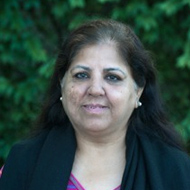
WOCAN Core Associate (India)

WOCAN Core Associate (India)
WOCAN Core Associate (India)

Meena Bilgi is a gender, water and agriculture specialist with more than two decades of experience internationally, with a special focus on India. Meena has contributed to the design of many country-level programs for international donor funded projects including the WOCAN/IFAD Rural Women’s Leadership Programme. As an active member of WOCAN, she represented WOCAN as part of women major group in preparatory meetings for the UN Commission for Sustainable Development’s 16th, 17th and 18th Session. Meena presented at a side event for WOCAN at the 17th session on “Empowering Communities to Combat Water Scarcity and Droughts.” She has also represented WOCAN at the FAO World Summit on Food Security in 2009, the UN High Level Task Force for the Global Food Security Crisis in 2010 and she is currently helping design country-level pilots for WOCAN’s Rural Women’s Leadership Project.